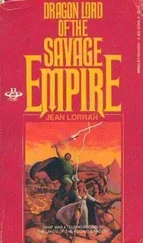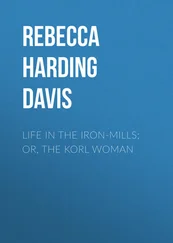Mark Mills - The Savage Garden
Здесь есть возможность читать онлайн «Mark Mills - The Savage Garden» — ознакомительный отрывок электронной книги совершенно бесплатно, а после прочтения отрывка купить полную версию. В некоторых случаях можно слушать аудио, скачать через торрент в формате fb2 и присутствует краткое содержание. Жанр: Старинная литература, на английском языке. Описание произведения, (предисловие) а так же отзывы посетителей доступны на портале библиотеки ЛибКат.
- Название:The Savage Garden
- Автор:
- Жанр:
- Год:неизвестен
- ISBN:нет данных
- Рейтинг книги:4 / 5. Голосов: 1
-
Избранное:Добавить в избранное
- Отзывы:
-
Ваша оценка:
- 80
- 1
- 2
- 3
- 4
- 5
The Savage Garden: краткое содержание, описание и аннотация
Предлагаем к чтению аннотацию, описание, краткое содержание или предисловие (зависит от того, что написал сам автор книги «The Savage Garden»). Если вы не нашли необходимую информацию о книге — напишите в комментариях, мы постараемся отыскать её.
The Savage Garden — читать онлайн ознакомительный отрывок
Ниже представлен текст книги, разбитый по страницам. Система сохранения места последней прочитанной страницы, позволяет с удобством читать онлайн бесплатно книгу «The Savage Garden», без необходимости каждый раз заново искать на чём Вы остановились. Поставьте закладку, и сможете в любой момент перейти на страницу, на которой закончили чтение.
Интервал:
Закладка:
"Really?"
"I come here every day if I can."
It wasn't surprising, he continued, that the statue of Flora had been modeled on Venus, given the close link between the two goddesses. Both were associated with fertility and the season of spring. Indeed, it was quite possible that the goddess of love and the goddess of flowers appeared alongside each other in two of the most celebrated paintings to come out of the Renaissance: Sandro Botticelli's Primavera and his Birth of Venus.
"Really?"
"It's a new theory, very new."
"Ah," said Antonella skeptically.
"You're right, it's probably nothing." He shrugged, knowing full well that it wasn't, not for her, not if she visited the garden as often as she claimed to.
"Tell me anyway."
There was no need to explain Flora's story; it was in the file, which she had surely read. Her great-grandfather had even included the Latin lines from Ovid's Fasti detailing how the nymph Chloris was pursued by Zephyrus, the west wind, who then violated her, atoning for this act by making her his wife and transforming her into Flora, mistress of all the flowers.
No one disputed that Zephyrus and Chloris figured in
Botticelli's Primavera, but until now scholars had always read the figure standing to the left of them as the Hora—the spirit—of springtime, scattering flowers. Hence the name of the painting.
"But what if she's really Flora?" he asked.
"After her transformation?"
"Exactly."
"I don't know. What if it is her?"
The painting could then be read as an allegory for the nature of love. By pairing Flora—a product of lust, of Zephyrus's passion— with the chaste figure of Venus, then maybe Botticelli was saying that true love is the union of both: passion tempered with chastity.
It was possible to read the same buried message in the Birth of Venus. Zephyrus and Chloris were again present, suggesting that the female figure standing on the shore, holding out the cloak for Venus, might well be Flora.
"And Venus again represents chastity?"
"Exactly. Venus Pudica."
She smiled when he adopted the well-known pose of Venus in her shell, modestly covering her nakedness.
"It's a good theory," she said.
"You think?"
"Yes. Because if it's right, then Flora is a symbol for the erotic, the sexual."
"Yes, I suppose she is."
Antonella turned her gaze on Flora. "Do you see it now?"
He looked up at the statue.
"See the way she stands—her hips are turned away, but they are also . . . open, inviting. Her arm covers her breasts, but only just, like she doesn't care too much. And her face, the eyes, the mouth. She is not una innocente."
He could see what Antonella was driving at. Maybe he was wrong to have attributed the slight slackness of the pose to the inferior hand of a secondary sculptor. Maybe that sculptor hadn't been striving for delicacy and poise, but for something looser, more sensual. No, that was wrong. He had somehow managed to achieve both—a demure quality coupled with an erotic charge.
"So I'm not wrong?"
"Huh?" he said distractedly.
"I'm not alone. You see it too."
"It's possible."
"Possible? It is there or it isn't," came the indignant reply.
"You're not wrong."
"Everyone else thinks I am. My grandmother thinks I imagine it, and this says very much about me."
"What does she think it says about you?"
Even as the words left his mouth he realized it was an impertinent question, far too personal.
"It doesn't matter now," she replied, "because we are right and she is wrong."
He found himself smiling at the ease with which she'd deflected his inquiry, sparing him further embarrassment. His mind, though, was leaping ahead, questions already coalescing. Was it done knowingly? And if so, why? Why would a grieving husband allow his wife to be personified as some prudish yet pouting goddess, some virgin-whore?
The questions stayed with him as they moved on down the slope to the grotto buried in its mound of shaggy laurel. They entered silently, allowing their eyes to adjust to the gloom.
The marble figures stood out pale and ghostly against the dark, encrusted rock of the back wall. In the center, facing left, was Daphne at the moment of her transformation into a laurel tree, her toes turning to roots, bark already girding her thighs, branches and leaves beginning to sprout from the splayed fingers of her left hand, which was raised heavenward in desperation, supplication. To her right was Apollo, the sun god, from whom she was fleeing— youthful, muscular, identifiable by the lyre in his hand and the bow slung across his broad back. Below them, an elderly bearded gentleman reclined along the rim of a great basin of purple and white variegated marble. This was Peneus, the river god, father to Daphne.
The story was straight from Ovid's Metamorphoses : the nymph Daphne, fleeing the unwelcome advances of a love-struck Apollo, begged her father to turn her into a laurel tree, which he duly did. It was an appropriate myth for a garden setting—Art and Nature combining in the figure of Daphne. As the file pointed out, there was a relief panel depicting the same scene in the Grotto of Diana at the Villa d'Este in Tivoli. But here in the memorial garden, the myth had an added resonance, mirroring the story of Flora—a nymph who also underwent a metamorphosis following her pursuit by an amorous god.
This last observation was Antonella's. It wasn't in the file, nor had it occurred to Adam, which was mildly annoying, although this wouldn't prevent him, he suspected, from claiming it as his own for the purposes of his thesis.
Antonella explained how the water poured from the urn held by Peneus, filling the marble basin. A lowered lip at the front then allowed it to overflow into a shallow, circular pool set in the stone floor. This was carved with rippling water, and at its center was a female face in relief, staring heavenward, the gaping mouth acting as a sink hole. The hair of this disembodied visage was bedecked with flowers, identifying it as that of Flora: the goddess of flowers drawing sustenance for her creations from the life-giving spring water.
It was an exquisite arrangement, faultless both in its beauty and in its pertinence to the overarching program of the garden. The only false note was the broken-off horn of the unicorn crouched at Apollo's feet, its head bowed toward the marble basin. This was a common motif in gardens of the period. A unicorn dipping its horn into the water signified the purity of the source feeding the garden; it announced that you could happily scoop up a handful and down a draft without fear for your life. At some time since that era, though, the unicorn had lost the greater part of its horn.
Adam fingered the truncated stump. "It's a pity."
"Yes. What is a unicorn without its horn?"
"A white horse?"
Antonella smiled. "A very unhappy white horse."
They headed west from the grotto on a looping circuit, the pathway trailing off into the evergreen woods blanketing the sides of the valley. They sauntered through the shade, chatting idly as they went. Antonella lived across the valley in a farmhouse she rented from her grandmother. The old building was delightfully cool in summer but bitterly cold in winter, and she had a rule that whenever the well water froze she would decamp to her brother's apartment in Florence. She and Edoardo were the children of Signora Docci's only daughter, Caterina, a woman whom Professor Leonard had referred to as "dissolute," something Adam found hard to square with the self-possessed creature stepping out beside him.
Her parents were divorced, she explained. Her mother lived in Rome, her father in Milan, where he was given to business ventures of a distinctly dubious nature, which promised (and invariably failed to deliver) untold wealth. She said this with a note of mild amusement in her voice.
Читать дальшеИнтервал:
Закладка:
Похожие книги на «The Savage Garden»
Представляем Вашему вниманию похожие книги на «The Savage Garden» списком для выбора. Мы отобрали схожую по названию и смыслу литературу в надежде предоставить читателям больше вариантов отыскать новые, интересные, ещё непрочитанные произведения.
Обсуждение, отзывы о книге «The Savage Garden» и просто собственные мнения читателей. Оставьте ваши комментарии, напишите, что Вы думаете о произведении, его смысле или главных героях. Укажите что конкретно понравилось, а что нет, и почему Вы так считаете.











